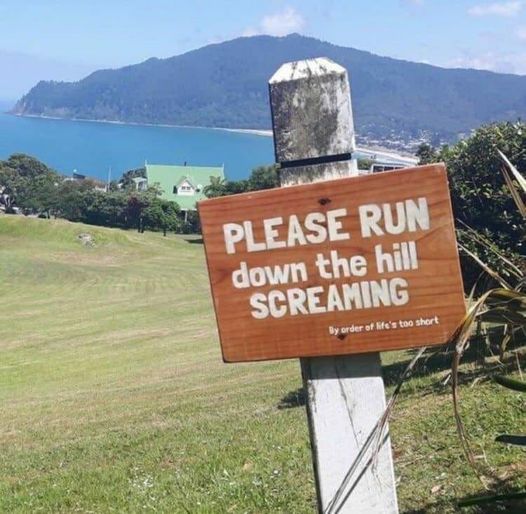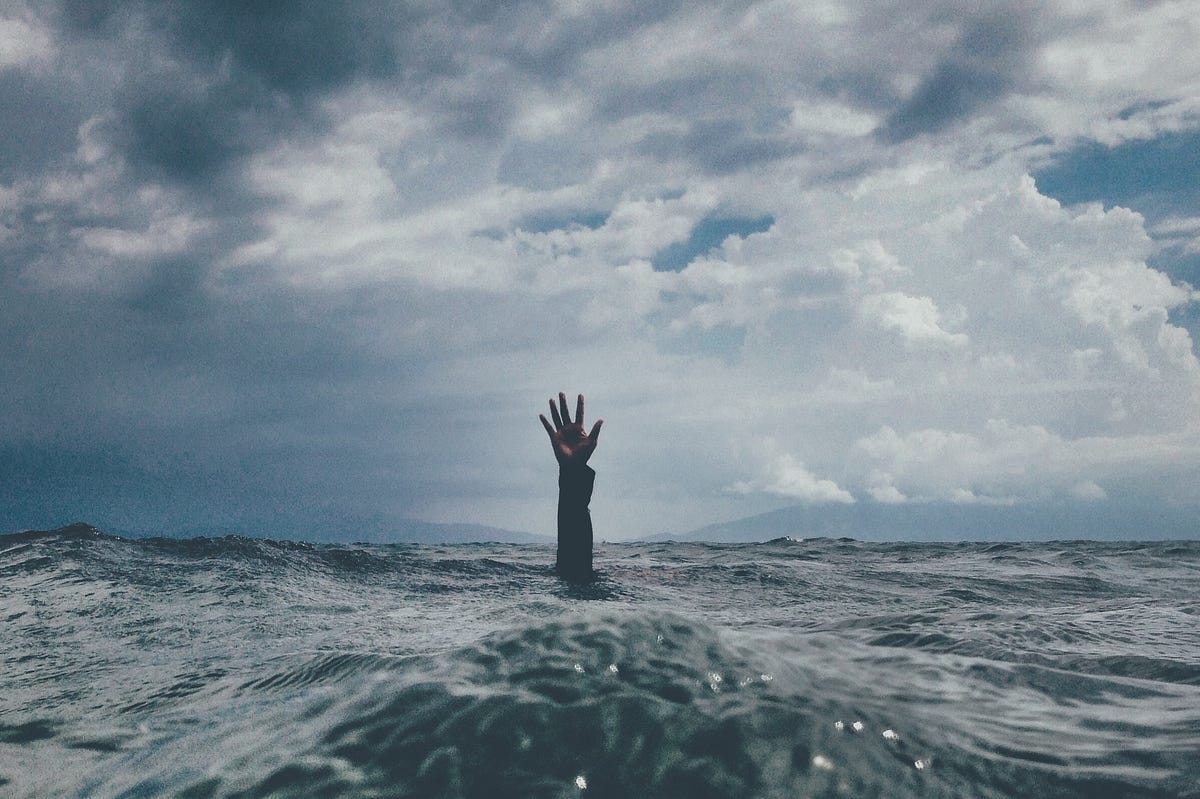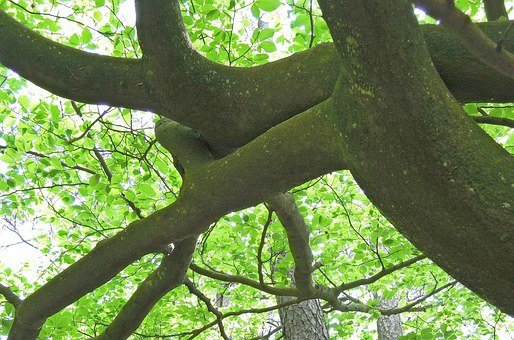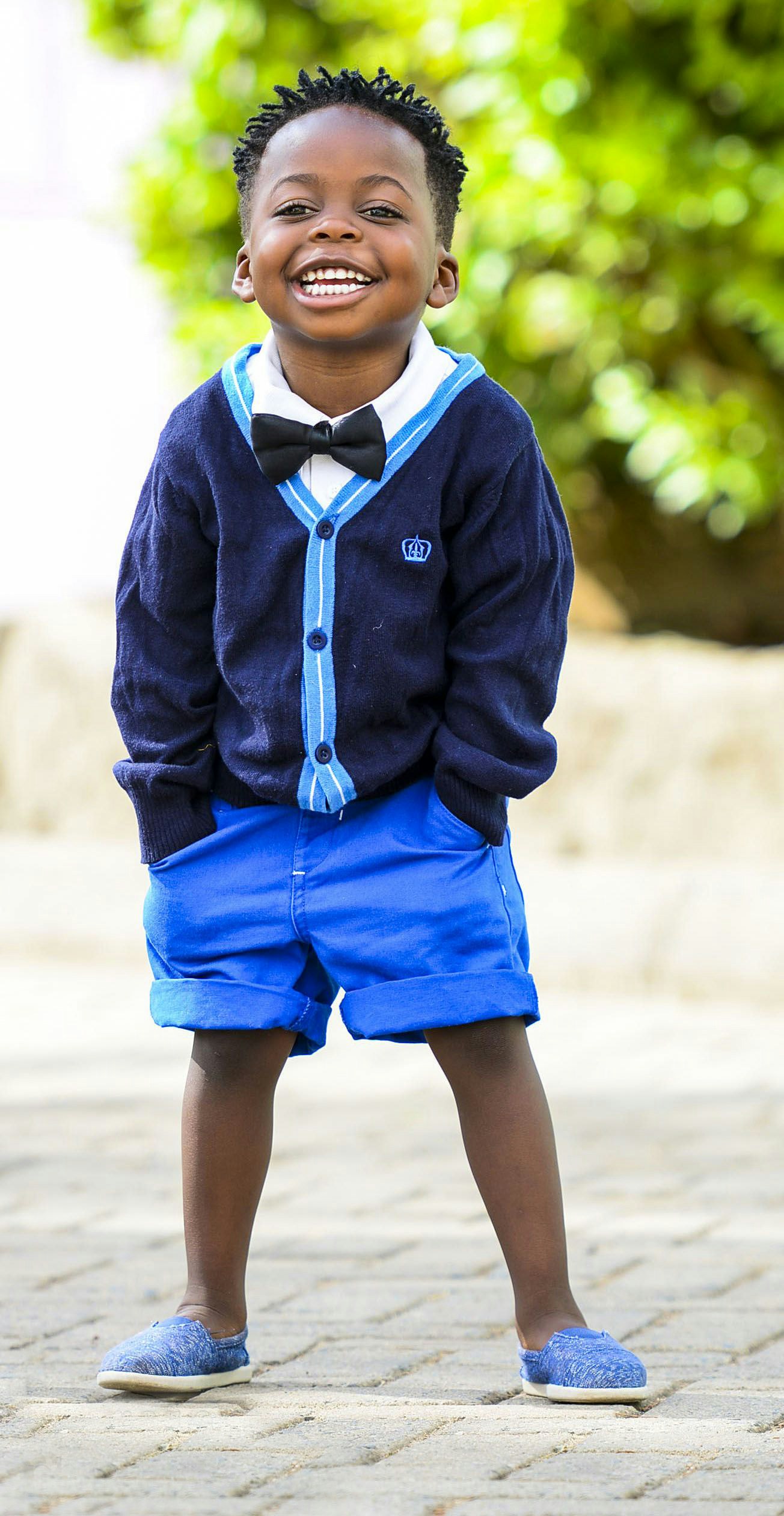
If you and I want different and better results, we need to do different and better things. Quite often, that means harder things.
Western society has slipped into a comfort cocoon. When faced with something hard, all too often we retreat, put off, avoid. When faced with difficulty that we can't avoid, all too often we may choose toxic avoidance techniques.
Increasingly, the more stressed we feel, for example, the more comfort food we want, which is often not at all good for us. Covid revealed how we hid from what was hard, which in fact in many cases was time inside our own heads.
We want the comfort of an easy chair, mindless entertainment and please, don't ask me to exercise. Just. PLEASE. I just wanna curl up and veg out in front of my reruns of Game of Thrones with my Big Mac, fries, shake and four apple pies.
We choose to anesthetize our stress or our relative discomfort in life with anything from booze to Botox to bottomless doughnut supplies. I've been there, and the results weren't pretty. They aren't pretty now for us as a society.
Then there is how we escape: drugs, opioids, food, alcohol, a whole smorgasbord of compulsive activities. I've been there too; my "drugs" were food, shopping and exercise. All diversions to avoid suffering.
What are we avoiding? My guess, at least, it's the hard things.
Life is full of failure, ignominy, pain and suffering, the last of it being largely optional. By the same token, looking inward, being willing to face off with the demons who inhabit our emotional basement, is also hard.
If not outright terrifying.
What we fear and don't face gets larger and even more terrifying.
It wasn't until I faced into my history of incest, rape and sexual assault that I was able to end the eating disorders. It had taken forty years.
This past year I read The Comfort Crisis by Michael Easter, and drew from it for multiple articles. I agree with much of what he reports, although some of his conclusions are argued by other researchers. Be that as it may, we are as a society far too concerned with the kinds of comforts which cost us our health, quality of life and our belief in our ability to handle hard things.
Resilience, if you will.
As a nation, as a society, we largely have no clue what real toughness is. We relate it to Paul "Bear"Bryant, the Lou Gossett Oscar-winning drill sergeant in An Officer and a Gentleman. Badass adventurers kissing cobras, all that. But that's not true toughness. We've got it seriously wrong.
Real grit and power are Dungy, not Ditka.
Sometimes we may use such adventures and extremity as avoidance, thinking that by running extreme endurance races we're proving ourselves when we are, in fact, running from something inside us.
I've had it seriously wrong. I'm quite happy to admit that publicly and rewrite my path forward based on what I understand to be true resilience. Here's a little of how I got there.
During a recent trip to Thailand, the heat of the afternoons allowed me plenty of time to read. One of the books is Do Hard Things by Steve Magness.
Right away, Magness dismantles our notion of what being tough is all about.
Magness rips up the toxic masculine version of toughness and grit which Americans in particular love to elevate. It's sick, and it's killing us off, because it feels as though we have only one choice. We're either the tough Rambo badass, devoid of feelings and not minding if someone cuts off an arm. Hell, we'll just wrap it and keep going.
Or we retreat completely into our comfort, wholly incapable of living up to the Lone Ranger Tough Guy idiocy. We're wimps and snowflakes.
This is a terrible choice to have to make. As a culture we celebrate the wrong kinds of grit. As a result, we overlook and disregard the kinds of toughness born of doing hard things which have nothing whatsoever to do with doing twelve Tough Mudders in a week.
This book forced me to take a long, hard, difficult look at my own life. Where I have bought into the toxic model and tried to find some solace in being able to handle pain and push myself beyond reason, it has cost me. Not just in injuries, but it has cost me relationships, most especially with myself.
The unrelenting need to prove how much I can take no matter what life throws at me has isolated me if for no other reason than it's hard to be around someone who is so hard on herself.
Or himself.
Doing hard things is part of life. Avoiding hard things costs us quality of life, for when we avoid the tough stuff, we never find out what we can do.
In all fairness, and to Magness' point, "hard" is broadly defined by each of us. What is immensely difficult for most (leaping out of airplanes) is easy for me. What is easy for you might be monumentally difficult for me, like having and raising kids. I don't have that kind of fortitude.
The question is whether or not we are willing to do what is difficult for us. That is what builds resilience. That is earned through effort.
This Washington Post article discusses how much we value effort. While that may be true, right now as a society we seem to be running from the kind of effort which could do us a great deal of good. Here's the article:
I think we fear effort because we fear failure, and the public and private censure that comes with it. That and the fact that we are bereft of enough role models who fail publicly, own it, and make it the superb learning pivot that it is for all of us.
My kind of hard is different from most because I am nearly seventy. I love two deeply difficult things: I like staring into the eyes of my internal demons until they blink first.
And I love difficult sports. Difficult sports have taught me that I have the courage to face some pretty tough things.
I am a huge fan of what this WP article calls Type II fun:
https://www.washingtonpost.com/wellness/2022/03/24/what-is-type-2-fun/
At the other end of a mountain climb, a hard workout, I feel terrific. At the end of a sky dive or paraglide or a hard workout, I feel like a million. That is not everyone's cuppa, nor should it be. Effort is different for each of us. For us to feel proud of our effort, it needs to be something that really truly is hard for us. That way when we put our proverbial backs to the task, there is something righteous about the blood, sweat and tears we've invested.
Type II fun allowed me to translate that effort into facing much harder issues inside me. That's where it has served me the best: learning to be fearless in challenging sports crossed over into many areas of my life. That's not for all of us.
However I can attest that taking on skydiving at barely 21 gave me some of the strength to deal with the rapes in the military. I knew I had balls. More than the cowards who raped me because they knew I couldn't fight back.
When we reward ourselves and our children for mediocrity, or for just showing up, we teach them nothing about resilience. We teach them that vague effort is worthy of a trophy and that failure is a fate worse than death. That is teaching ourselves and our kids to fail at life.

Most things truly worth having, be that a degree, the right job, happy and healthy and well-adjusted kids, the relationship you enjoy living with, all of it, take work. Sometimes that's very hard work, including the hard deep work of looking inside ourselves to ask monumentally difficult questions about who we are, our worthiness, our intrinsic value to an often brutal and uncaring world.
.To my mind, it is of course the most worthy of all hard work, for that allows us the courage to do hard things.
An unexamined life is not worth living. -Socrates
A well-lived life does not mean that someone is leaping off bridges or climbing Mt. Everest. That works for some. For others, hard is defined by raising two or three kids on three minimum wage gig jobs while struggling to secure decent food, housing and medical care. For others it's forfeiting a dream so that someone can provide for an ailing parent, a desperately sick child. For others it's achieving a degree against all odds.
We sometimes fail to recognize how bitterly difficult life is for so many people. We idolize the Everest climber (that is a luxury, given the costs and training involved) yet demean those folks who scrape out a life and a future for their children after emigrating to America, giving up all they had, and starting all over speaking limited English.
I won't begin to touch on those affected by racism, that is not my place. But you can add that whole other level of hard, if not plain impossible sometimes, onto everyday life for far too many.
We need to better define what's challenging, and what's hard. We don't give much credit to the half of the population which undergoes the pain of childbirth, which is considerable. Especially if they are left to their own devices in a world which provides little to keep them afloat, a problem that is about to get far worse in America.
You see my point. We elevate extreme sports while failing to give ourselves and others credit for facing down chronic illness or extreme pain. For taking care of sick family members or doing what it takes to face seemingly insurmountable odds when we lose a job or lose a child.
Too many of us avoid difficulty altogether, having little faith in our ability to handle it. So when it does come, and it will, we have few resources with which to paddle the Class V rapids that come into our lives in the form of bankruptcy or long Covid.
Medium writer John DeVore wrote a revealing article which addresses precisely the kind of "crisis" we really are facing in America- how men see themselves, and how the toxic masculinity that is woven throughout our culture costs us real men, in that sense that strength lies in doing the hardest things. In this case, being truly vulnerable. Here is his piece:

From DeVore's article:
The crisis Brooks and Reeves are writing about is, actually, an opportunity to teach this to children who identify as boys — help others — and to celebrate their quirks and affirm their dreams, and tell them the secret to success and happiness is to be kind. Life is short and uncomplicated. Eat vegetables. Get a good night’s rest. Anger is weakness, and love is courage. Humans are builders, and courage fuels ambition. Show up for friends when they need you. Call your parents. Work hard and tell the truth and share your toys and laughs and bounty with others but always, always be kind. (author bolded)
and more tellingly:
The dream of right-wingers is to raise an army of men who behave the way granddad did — only without the non-stop spousal abuse and dying at 50 of a heart attack. Well, maybe little spousal abuse. They want modern men to be strong and silent and completely oblivious to the plight of the poor or the weak, or the marginalized.
Toxic, indeed.
Succeeding in life, where it matters the most, is being able to do hard things.
Face down the fears which dog our steps, undermine our confidence and feed the need to find the escape valve.
Be generous and kind and show your shadow side, your weak side. The bright light of day on your weakest points has a way of helping you strengthen them.
I can't say what hard things are for you. That is unique to your life experience. All I do know is that when you and I choose to do what is difficult for us, that becomes a forever muscle that we can flex over and over again.
As I age into my later years, the muscles I built at the gym for fifty years are serving me very well. But someday they may not.
However, the muscles that I have built by facing into my personal demons, staring down the lies society feeds me about being worthless as an aging woman, erasing the despicable untruths that I learned as an assault survivor (you must have wanted it), those muscles are far stronger than any physical muscles.
That's resilience.
That's goddess work. Goddess work demands vulnerability. It demands that we admit where we are weak. It demands that we admit defeat, failure and loss. Those become the very building blocks for resilience.
Vulnerability is strength. Accepting defeat builds strength. Accepting failure builds great personal power. Owning our losses, our weaknesses puts steel into our backbones.
Resilience is earned. Many of us are far more resilient than we realize if we would only give ourselves credit for showing up where others won't. Many more of us have some work to do.
Do hard things. Things that are hard for YOU, not Bear Grylls. For you. For you are the only one who knows what fears lurk in your basement, what terrors scrape at your bedroom window at night. Learn to rewrite what strength and true grit look like. Find out how vulnerability is perhaps the greatest strength of all.
Finally, a parting gift:

The older I get, the more I shed the lies I learned in this society. Coming into my own true strength is very different from building strength out of fear. Of course it's hard. But I have the muscles for it.
So do we all, should we but build the right ones.

Dear Walkabout Saga Reader:
If my work appeals to you, may I kindly invite you to consider joining those Patreon supporters whose generosity keeps the gas in my tank as it were. There are many more of you reading, which I appreciate very much. However as with National Public Radio, many more read without supporting, and I am asking you to consider offering the cost of a coffee to help me do more than just keep the lights on. That said, if you find value in my writing, and are so inclined, I'd be grateful for what support you can give. If you know others who could benefit from what I produce here, please let them know.
My purpose is to Move People's Lives. I can do more of that with your help.
Thank you.
You can explore that option here.
However you decide to partake of my writing, again, thank you.


Comments powered by Talkyard.